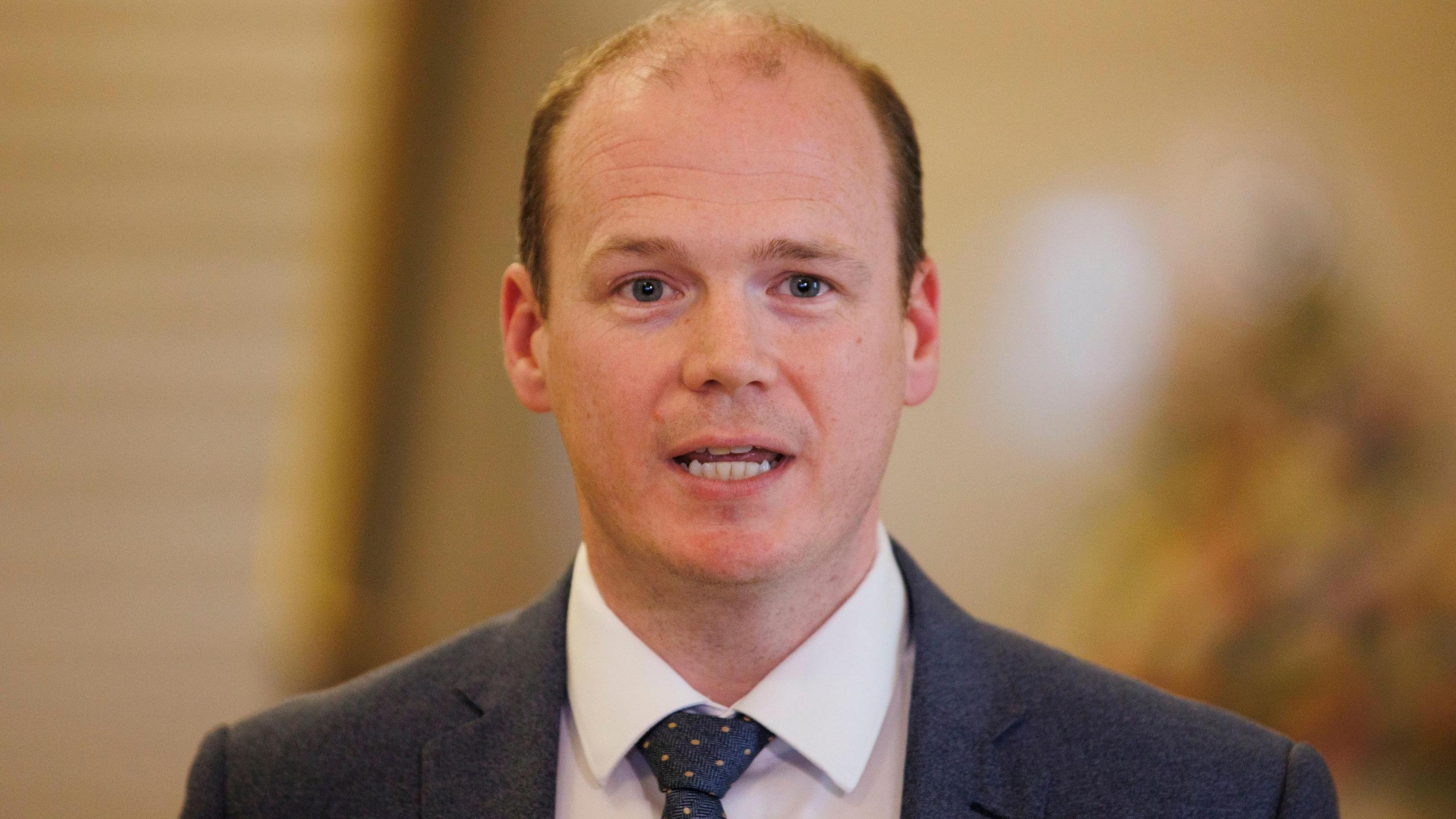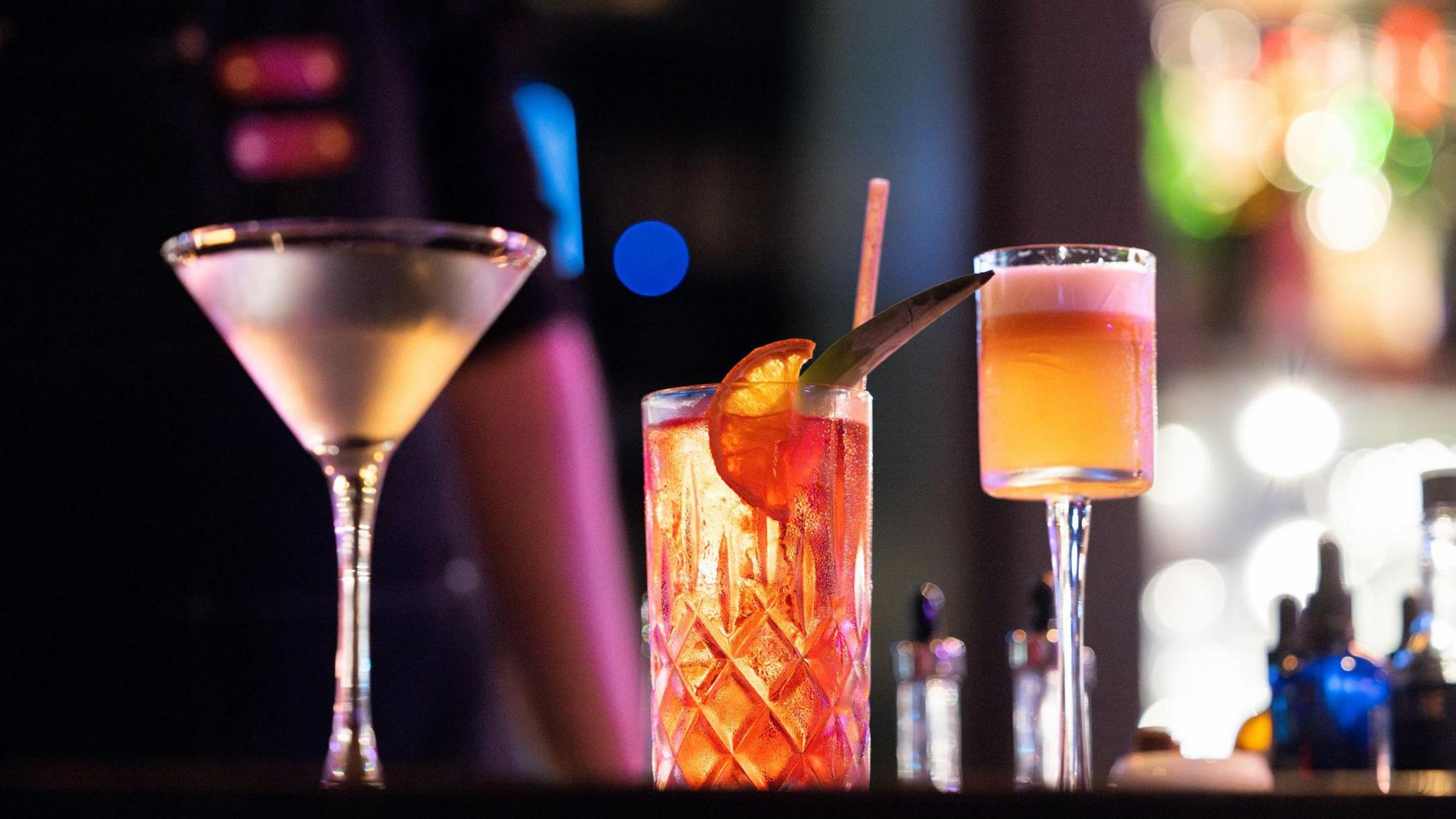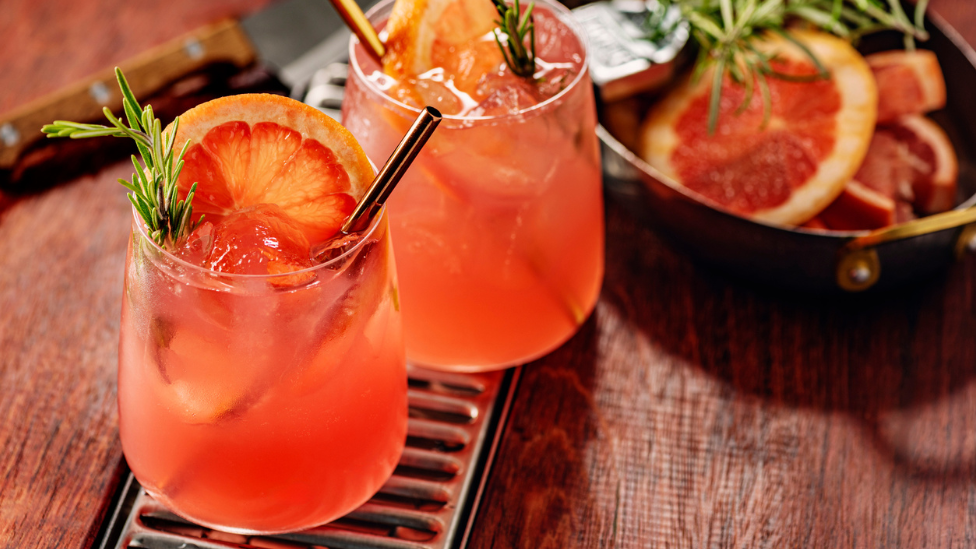Alcohol licensing recommendations rejected by Lyons

Gordon Lyons said: "These changes could have significant and unintended consequences on the economic viability of our hospitality sector at a time when many are operating below viability thresholds."
- Published
Communities Minister Gordon Lyons has rejected a number of changes to the rules around alcohol licensing recommended by an independent report.
The report, led by academics at the University of Stirling, was commissioned by the Department of Communities to fulfil statutory requirements, at a cost of £478,000.
The minister, speaking on Tuesday, said: "These changes could have significant and unintended consequences on the economic viability of our hospitality sector at a time when many are operating below viability thresholds."
Earlier this year it reported that existing rules for licensing the sale of alcohol restricted competition and risked stifling innovation.
That report recommended a number of changes to Northern Ireland's existing licensing rules, most notably the creation of a new licensing agency and the reform of the "surrender principle."
The existing rules

The minister's decision means that existing licenses will remain a valuable commodity for their holders
Under current rules, distinctive to Northern Ireland, there are a set number of licenses - if you want to open a pub or off-licence you have to obtain a licence from an existing business which is giving up or "surrendering" its licence.
The University of Stirling's independent report recommended that this be changed so that licenses could be granted on a per population basis, managed by a newly established licensing authority.
Communities Minister Gordon Lyons rejected the establishment of this new authority on cost grounds, fearing that these would be passed on to the hospitality trade in higher application fees or a new levy.
The minister's decision means that existing licenses will remain a valuable commodity for their holders.
Professor Niamh Fitzgerald, one of the report's authors said the department's response was "detailed and lengthy, but contains almost no meaningful engagement with the detailed and practical recommendations set out."
'Dick Turpin without the mask'

Free The Night said the current system described by the report was a "closed shop
Colin Neill is Chief Executive of Hospitality Ulster, representing existing license holders.
He welcomed the minister's announcement, saying "the recommendations of this report only added to the uncertainty felt by hospitality operators, risking investment, jobs and the long-term sustainability of our pubs and their rejection is good news for the industry".
Free The Night, a charity which campaigns to improve nightlife, has strongly condemned the minister's decision to maintain existing arrangements.
It said the current system described by the report was a "closed shop", a "cartel", and "Dick Turpin without the mask".
"Instead of relying on the transparent, peer-reviewed research commissioned by his own department, the minister has placed significant weight on submissions from private commercial interests."
Co-author Dr James Nicholls said he was "disappointed that action is not being taken on concerns expressed by stakeholders… It is the minister's prerogative to maintain the status quo, but it is unfortunate that an opportunity to address now very well-documented issues seems to have been passed over."
Related topics
- Published23 February
